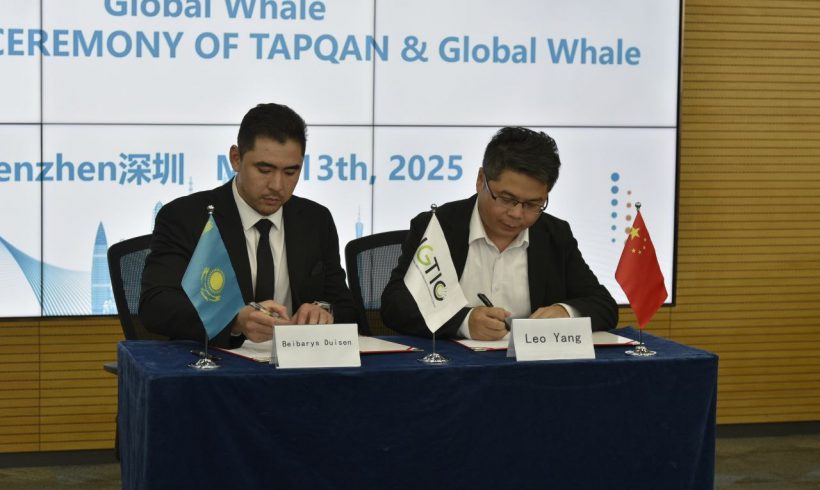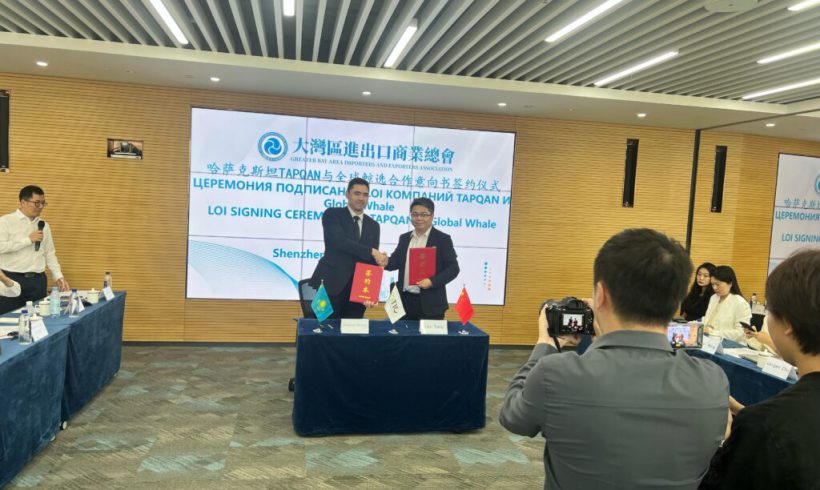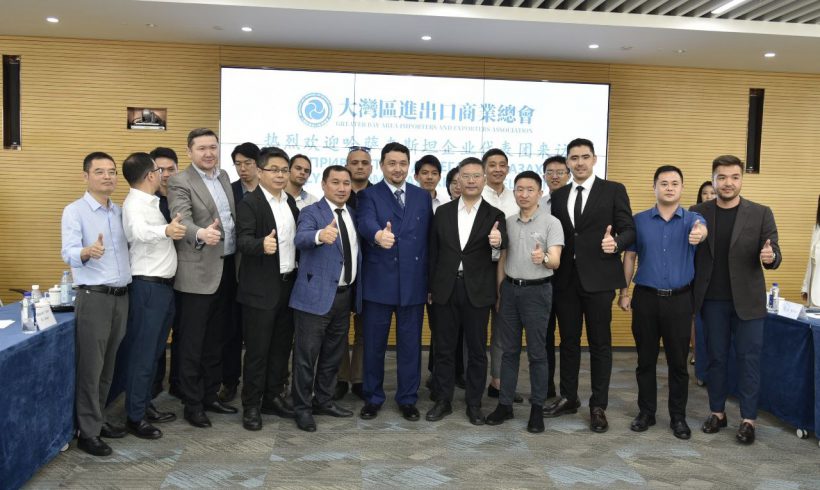Source: ER10
Kazakhstan’s innovative start-up Tapqan has signed an investment agreement with the Chinese company Global Whale to supply Kazakhstan with heavy-duty electric and construction machinery. The partnership also includes the establishment of a new joint venture in Kazakhstan. In an exclusive interview with ER10 Media, Tapqan founder Beibarys Duisen shared further insights.
“We have signed a Letter of Intent with the Chinese company Global Whale and the International Green Technologies and Investment Projects Center (IGTIC). This is far more than a formal step – it marks the beginning of building our own fleet of electric heavy machinery, which will be operated via the Tapqan platform,” said Beibarys.
Each vehicle will be equipped with GPS, live-streaming cameras, and a remote control system, allowing clients to monitor construction progress in real-time via a mobile application. Tapqan aims to demonstrate that in urban settings, electric machinery not only matches but exceeds diesel-powered alternatives in performance – offering quieter, cleaner, and more advanced technology.
“This agreement lays the groundwork for long-term collaboration. We are currently developing the financial model, business architecture, and efficiency projections. This is undoubtedly a complex stage, but it is essential for translating the concept into reality. We are confident in the project’s relevance and are committed to launching a pilot in Almaty,” Beibarys explained.
Tapqan will ensure a steady flow of rental requests and assume operational management of the fleet and its personnel. The founder brings prior experience, having managed a gravel quarry in Almaty Region, where he oversaw similar heavy machinery operations. The Chinese side will act as both investor and technology partner, providing the electric machinery and sharing expertise across all critical areas. IGTIC plays a key role as an expert body and coordinator linking business, environmental policy, and government programs. Their support ensures the project aligns with Kazakhstan’s sustainable development strategy and enjoys institutional backing.
“Honestly, I’m simply grateful that an idea we have worked on for so long is finally receiving support. If successful, this will be a powerful example that even in such a traditionally high-emission sector, like heavy machinery, sustainable innovation is possible,” said Beibarys.
In the pilot phase, Global Whale will shoulder the primary investment – delivering electric machinery, infrastructure components, and technical support. Tapqan, in turn, will focus on operational execution and gaining experience: testing how the equipment performs in urban conditions, how logistics operate, and how the market responds.
“This pilot is our opportunity to refine the model, validate its effectiveness, and prepare for scaling. In the future, we want to make the model accessible to other investors. I see tremendous potential in enabling broader participation in the development of sustainable fleets across other Kazakhstani cities. This can become a new format of sustainable investment – where profitability is combined with environmental impact.”
The Tapqan team is currently developing a financial and legal framework to support scalability and partner engagement based on the pilot’s success. Preparations are well underway. Following the agreement signing, the team entered the most intensive stage: documentation, financial modelling, legal establishment of the joint venture, equipment selection, and logistics planning. The first electric vehicles are expected to arrive in Almaty in early 2026, launching the pilot phase under real construction site conditions.
Beibarys emphasized that the partnership is rooted in a long-standing environmental commitment:
“As someone born and raised in Almaty, I’ve long been concerned about the city’s environmental issues. That’s why I became a member of the Baitaq Green Party of Kazakhstan and now serve in its Almaty branch. But for me, it’s not enough to just talk about ecology – I want to contribute through the sector I know best: construction and heavy machinery. The issue of outdated diesel fleets is global, and Kazakhstan is no exception. Electric machinery is a breakthrough solution, and even in China, it is only beginning to scale. I believe the most impactful way to protect the environment is to innovate from within your profession. That’s how this journey began.”
When seeking a technological partner, the team looked to China – the global leader in electric motor production and smart industrial solutions – and to IGTIPC for strategic alignment. Beibarys expressed his appreciation for the center’s Acting Chairman, Mr. Saken Kalkamanov, who recognized the project’s value from the outset and personally supported its development.
“The IGTIC team has proven itself as a group of highly competent and dedicated professionals capable of aligning environmental objectives with tangible implementation,” he said.
We extend our congratulations to Tapqan and wish continued success in delivering environmentally conscious solutions!




